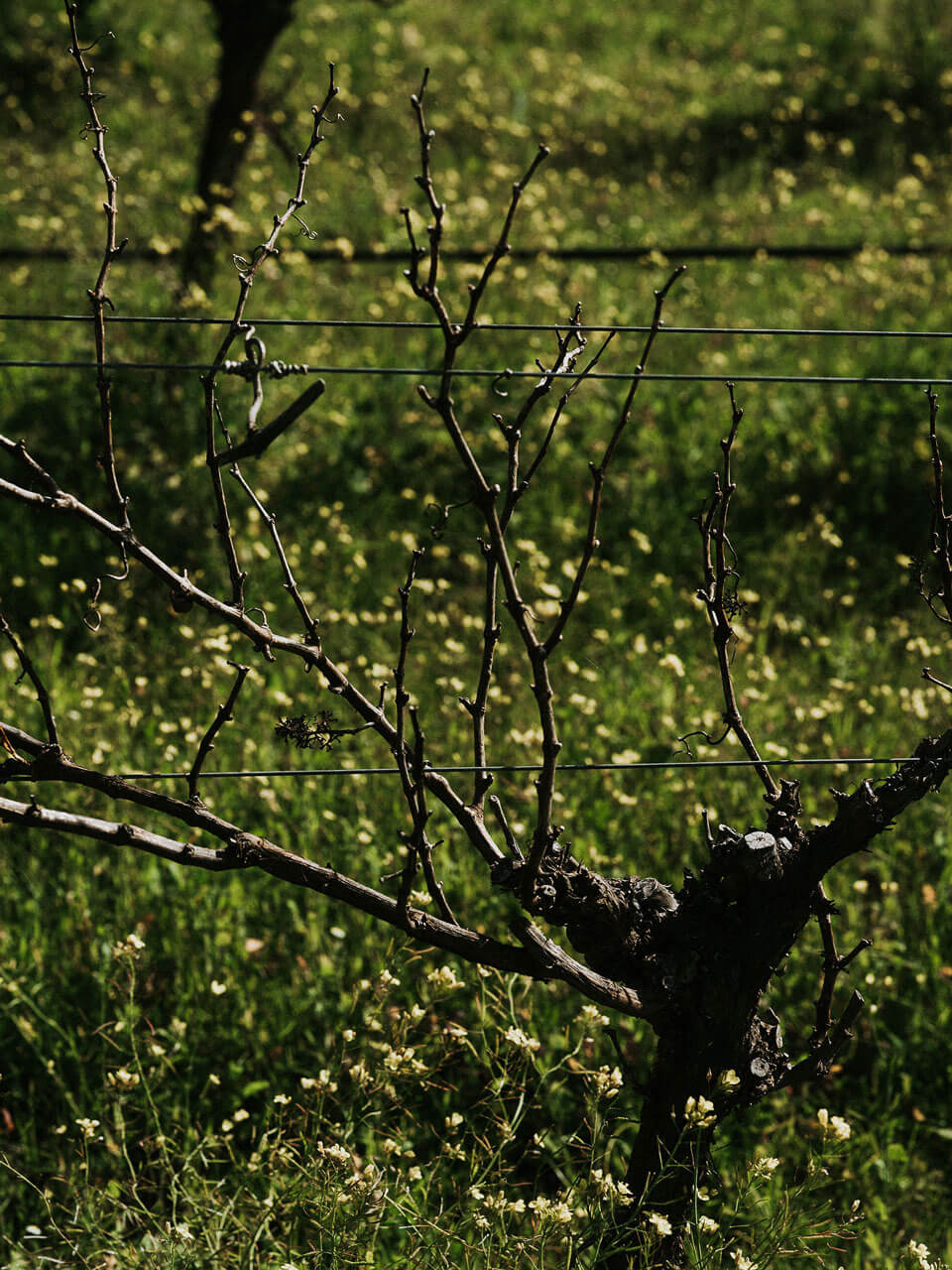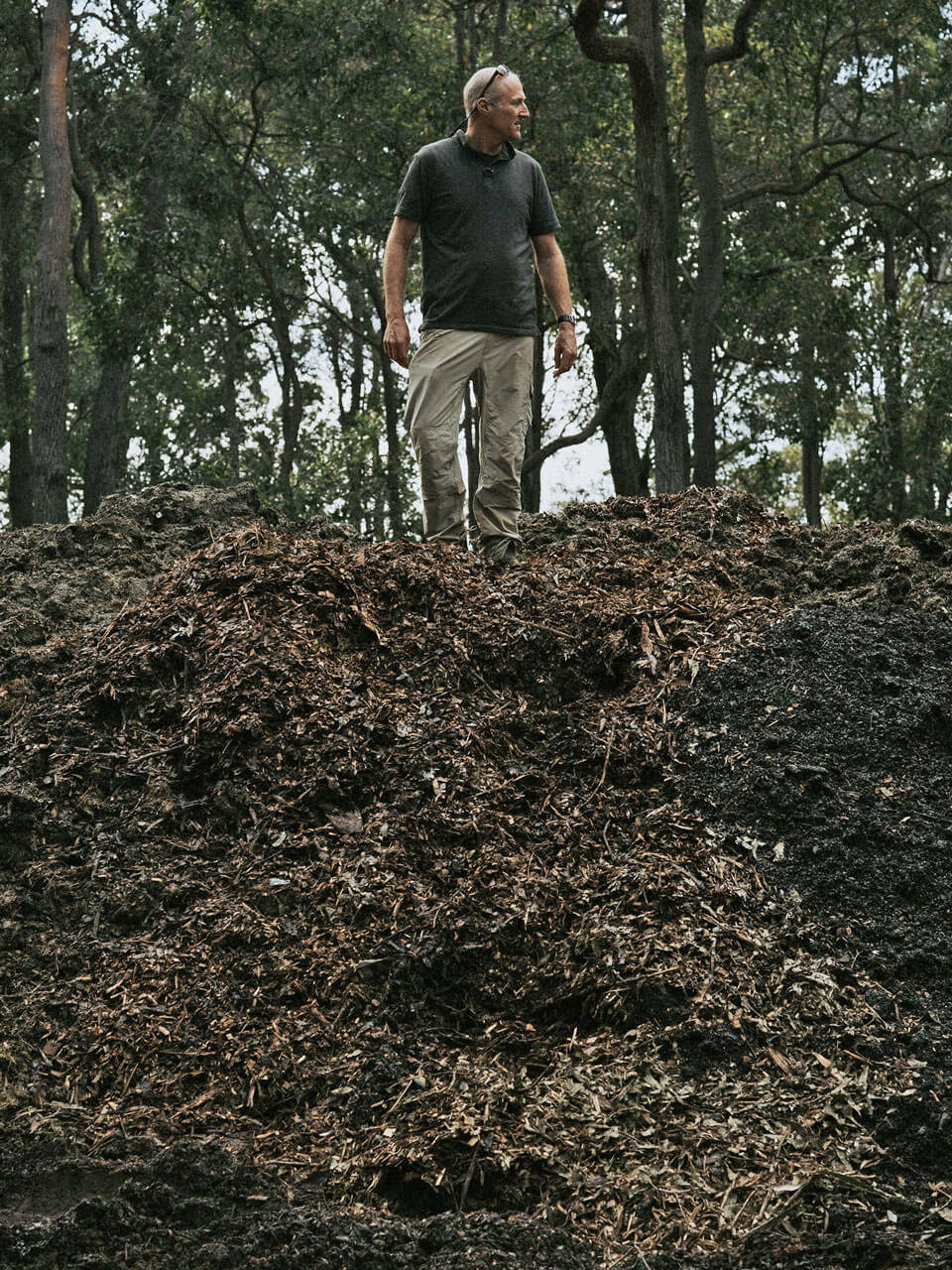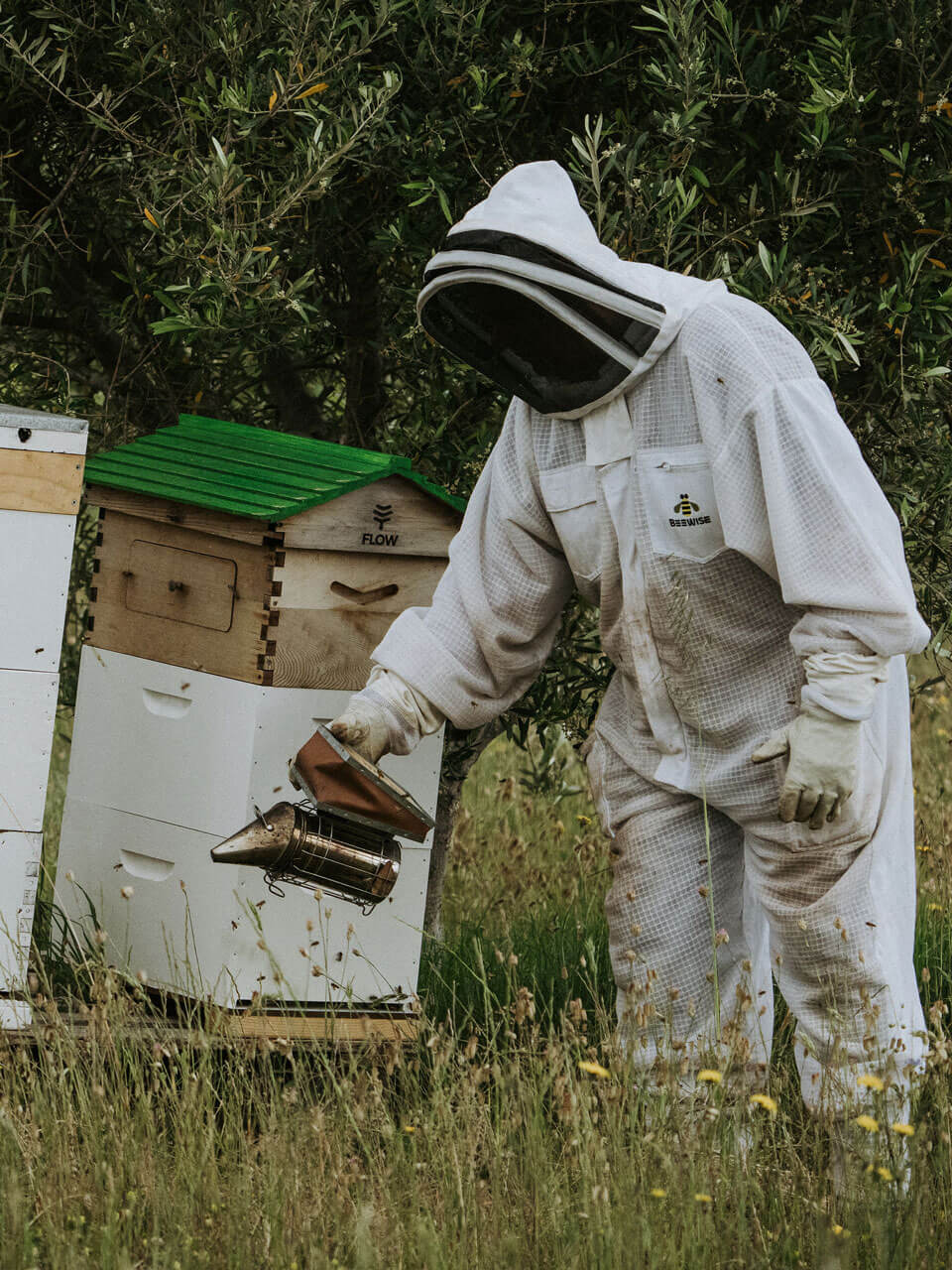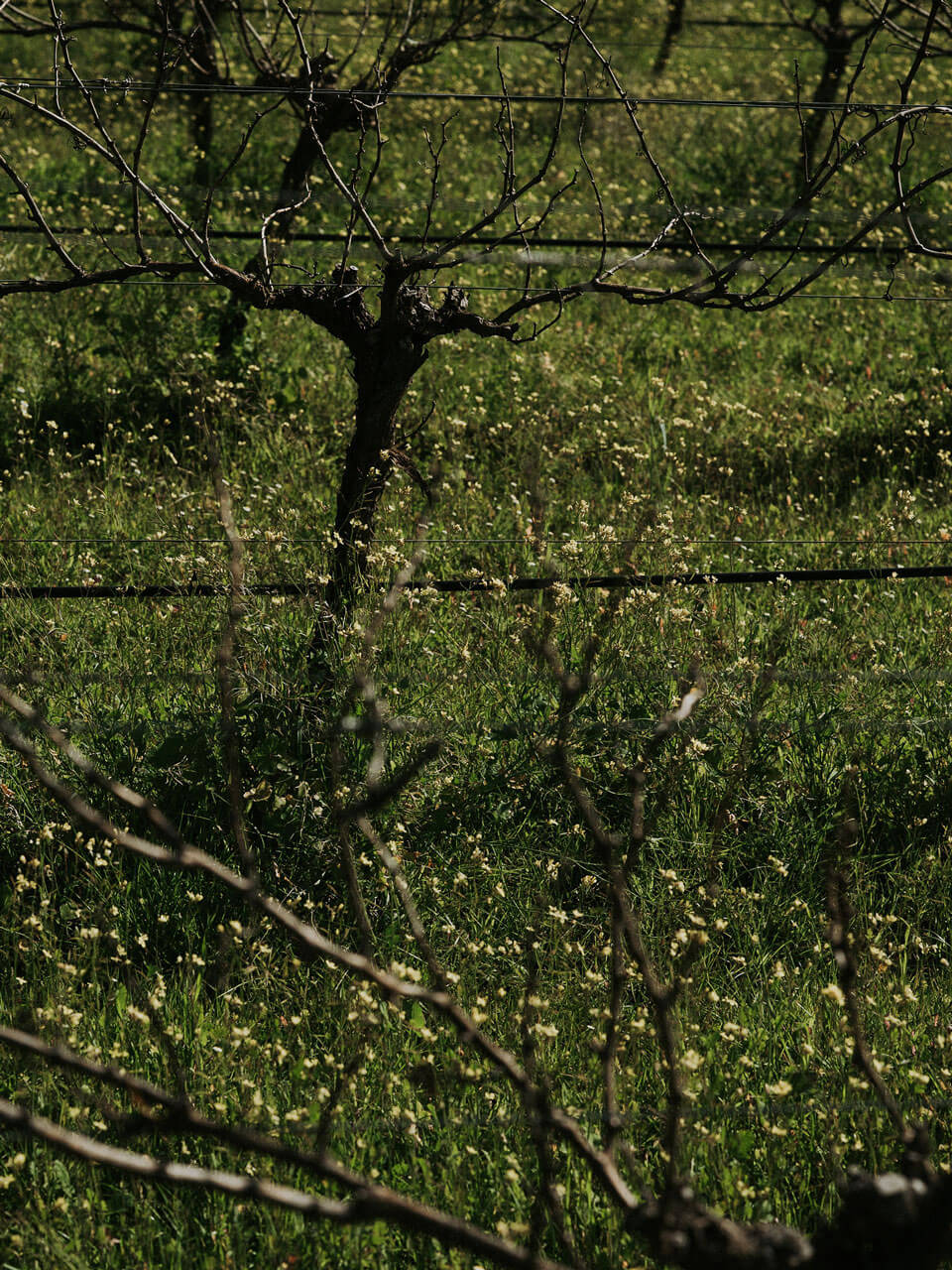Hazel’s Vineyard is the home site for Margaret River’s McHenry Hohnen, with the fruit making wines all along their range, including classic regional expressions of chardonnay and cabernet, emerging grapes like tempranillo, a mineral Southern Rhône blend and their flagship cabernets, Rolling Stone. Planted over 20 years ago, the site has been managed according to organic then biodynamic principles, with certification coming in 2020. Simon Keall manages the McHenry Hohnen vineyards with a sustainable ethos, which includes solar generation, no external water for irrigation and onsite composting.
McHenry Hohnen has three vineyards in Margaret River, with the “backbone” of the enterprise Hazel’s Vineyard, which is their southernmost site, in Forest Grove south of Witchcliffe. The vines are planted to a sun-drenched slope facing north near the headwater of Chapman Brook. The free-draining soil is a loamy ironstone gravel over a clay base. The 30.5-hectare vineyard was first planted in 1999, with three blocks removed and replanted in 2018 and ’19. The current varietal makeup is chardonnay, roussanne, malbec, zinfandel, cabernet sauvignon, merlot, petit verdot, shiraz, grenache, tempranillo and mataro, with all planted on own roots.
“We make several single vineyard wines from this vineyard that reflect the terroir, our two chardonnays from two different blocks do just that. We also produce a GSM from a bony gravel section in the vineyard, which results in a finer, more mineral style of wine.”
“Our biodynamic preparations, we believe, enhance our soil fertility and vitality, and coupled with our composting program, produce intensely flavoured fruit.”
The vineyard, which is managed by Simon Keall, is certified biodynamic (ACO). The vineyard and winery were certified in 2020, but the farming has been biodynamic since 2008, when viticulturist Mike Sleegers came on board (he has since handed the baton to Keall). Sleegers had worked with Vanya Cullen at the start of the millennium to convert the Cullen operation to biodynamics, which were certified in 2003. Prior to 2008, Hazel’s Vineyard was managed under an organic regime.
“Our biodynamic preparations, we believe, enhance our soil fertility and vitality, and coupled with our composting program, produce intensely flavoured fruit,” Keall says. “We are in the process of engaging a consultant for an audit of our carbon footprint with the intention to become carbon neutral and eventually carbon negative through increasing our soil carbon.”
Keall uses the typical biodynamic preparations to nurture the soil and vines, and sulphur is used to manage powdery mildew and botrytis, which are the principal disease pressures. Mealy bug is mitigated by introducing ladybird larvae, while the cover crops are of diverse species, encouraging beneficial insects as well as helping to fix nitrogen in the soils. The long-term plan is for a permanent sward that will not require tilling, resulting in better water holding and carbon capture and reduced compaction and diesel use from fewer tractor passes.
The grape marc (skins, seeds and stems) left after fermentation is composted along with cattle manure for a year, then spread across the vineyard. “We don’t use any soluble fertilisers,” Keall says, noting that they employ slow-release fertilisers like guano that won’t leach into waterways as pollutants. “We are working towards revegetating our creek lines with native species to improve biodiversity and water quality.” He also notes that the biodiversity and biodynamic practices make the property a haven for bees (aided by hives placed strategically on site) and native birds, further helping to manage insect and rodent populations.
Like the scourge that is couch grass – which discourages many other vineyard managers to convert fully to organics – the similar kikuyu grass is Keall’s biggest nemesis, but the battle is only ever fought with natural preparations and manual labour. “Controlling invasive weeds like kikuyu is a big challenge in organic vineyards,” he says. “We are working to bring it under control using summer cultivation practices and organic knockdown herbicides. It’s essentially a war of attrition on kikuyu.”
Owner Murray McHenry has recently purchased a neighbouring property to diversify the business with an agritourism venture. “This property will see more vines planted in the most appropriate sites while the rest of the property will be farmed utilising regenerative farming practices,” says Keall. That business plan has not been fully resolved, but a restaurant and cellar door supplied by onsite vegetable gardens and livestock is likely on the cards, and all biodynamic, of course. It’s a long-term plan for greater economic sustainability.
The vineyard is serviced by drip irrigation, with the water supplied solely by rainwater catchments on site, and solar is an ever-increasing part of the picture. “We have recently doubled the solar-generating capacity for the winery and pump shed, where at peak generation our energy demand is offset against solar generation.”
“Like many vineyards in Australia, there is significant variation in soil types within blocks,” Keall says. And that variation is something that naturally generates interest for single block wines, but it is also analysed to aid management strategies. “Generally, the winters here have become dryer, which makes precision irrigation an important tool in the vineyard,” says Keall, who notes that targeting blocks based on their soil types will provide an even more refined approach to irrigation practices to ensure water is used in an efficient and targeted manner.
Hazel’s Vineyard fruit is used to produce wines across the McHenry Hohnen range, including their pinnacle cabernet blend, ‘Rolling Stone’. “We make several single vineyard wines from this vineyard that reflect the terroir, our two chardonnays from two different blocks do just that. We also produce a GSM from a bony gravel section in the vineyard, which results in a finer, more mineral style of wine.”






